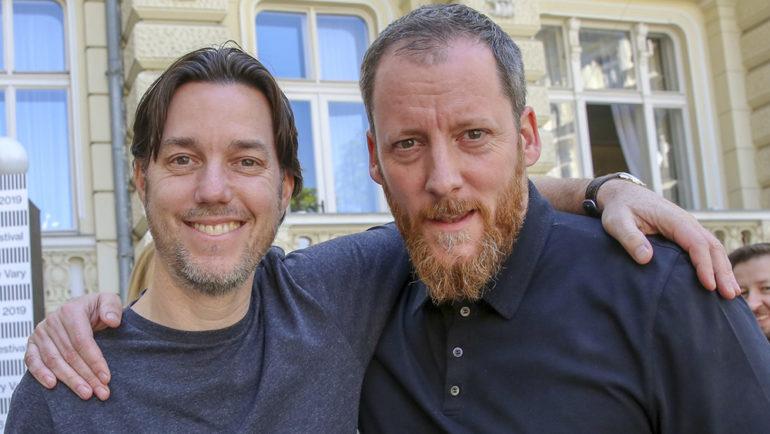Sony Pictures Classics’ Dylan Leiner on Getting Filmmakers and Distributors on the Same Page
By Leo Barraclough
LOS ANGELES (Variety.com) – Dylan Leiner, executive vice president, acquisitions and production at Sony Pictures Classics, has called on filmmakers and distributors to work more closely together, following decades when middle-men had sought to keep them apart, and challenged filmmakers to be more entrepreneurial.
Leiner, speaking at the Karlovy Vary Film Festival about sustainability in the movie biz, said that over his 25 years at SPC he had witnessed a disconnect develop after independent and international cinema moved from a mostly repertory theatrical model to a more mainstream one.
“During that transition, we saw all the agencies, most entertainment law firms and a lot of the production companies get organized in a way to keep filmmakers and distributors apart,” he said.
Leiner harked back to a previous era when “there was always this kind of camaraderie among the filmmaking community and the industry infrastructure.”
The consequence of the separation between filmmakers and distributors is a lack of understand among the former about the latter’s work to the detriment of both. “What happened is it raised a generation of filmmakers who didn’t actually understand the business well enough to create sustainability in their own careers,” he said.
“It is vital for filmmakers to understand who their audience is, and to make movies for an audience; to understand the financials of how their movies are made; to understand the distribution options – because there are many; to understand the media landscape – who are the opinion makers, who are the critics, what are the exhibition chains doing in the theatrical landscape; and if it’s content and storytelling not for the theatrical landscape, then what does that look like?”
He used as an example his experience at this year’s Cannes to underscore how a distributor’s face-to-face contact with a filmmaker can help. Prior to Cannes, he had told Ryan Heller, one of the producers of Un Certain Regard entry “The Climb,” to phone him when he was faced with the decision of who to partner with for U.S. distribution. When that time came, Heller called Leiner and they arranged for the film’s director, Michael Angelo Covino, to meet with SPC co-presidents Michael Barker and Tom Bernard. “We need that facetime with the director because it’s a marriage,” he told Heller. After that meeting SPC bought the movie. Leiner said: “It didn’t change what the movie was but we are going to have to spend so much time with this director it was having that facetime [that convinced SPC to buy the film].”
Leiner added that “filmmakers need to think outside the box and be entrepreneurial.” “This is evolution in the creative marketplace … the filmmakers who are going to survive are going to find a way to do it by hook or by crook.” He cited the example of Quentin Tarantino, when he was looking to make “Reservoir Dogs.” When asked why he got involved with the film, producer Lawrence Bender, according to Leiner, said: “Because I met him, and I knew he was going to make that film with or without me and I preferred for it to be with me.”
“Agents want to sign filmmakers who are somewhat self-sufficient and self-generating. Distributors want to work with filmmakers who are going to help to sell their movies and we don’t have to do all of it ourselves. The funding bodies want to be involved with filmmakers who have a professionalism and an ability to pull together a team,” he said.
“So I think it does go back to creative entrepreneurship, and I think that it is the responsibility of every creative person to take a certain amount of responsibility for themselves and the sustainability of their own life, and then find the right collaborators, and we can continue.”
Leiner referred to the example of the Dogme movement in Denmark, which “was as much about marketing as it was about the filmmaking.” “That was a group of filmmakers who said, ‘How do we differentiate ourselves? How do we create a kind of collaborative that gets international recognition.’”
He pointed to all the “different places where storytellers are telling their stories,” including films, series, short-form content and podcasts. “There is a creative explosion going on out there,” he said, and gave the example of the latest project from “Hedwig and the Angry Inch” actor-writer-director John Cameron Mitchell. Having pitched an idea for a series to broadcasters and platforms, and failing to get it financed, Mitchell reimagined it as a 10-episode musical podcast, and pitched it to Topic. The result – “Anthem: Homonculus,” starring Mitchell, Glenn Close, Laurie Anderson and Patti LuPone – launched on the Luminary platform in April.
“People are finding ways to get their stories out, to be creative, to be storytellers, and it is an exciting time, it is a scary time, but there are opportunities. And we all need to be creative. We all need to find new and different channels and different audiences,” he said.
Pictured: Executive vice president acquisitions and production at , , with the executive director of the , Krystof Mucha.

